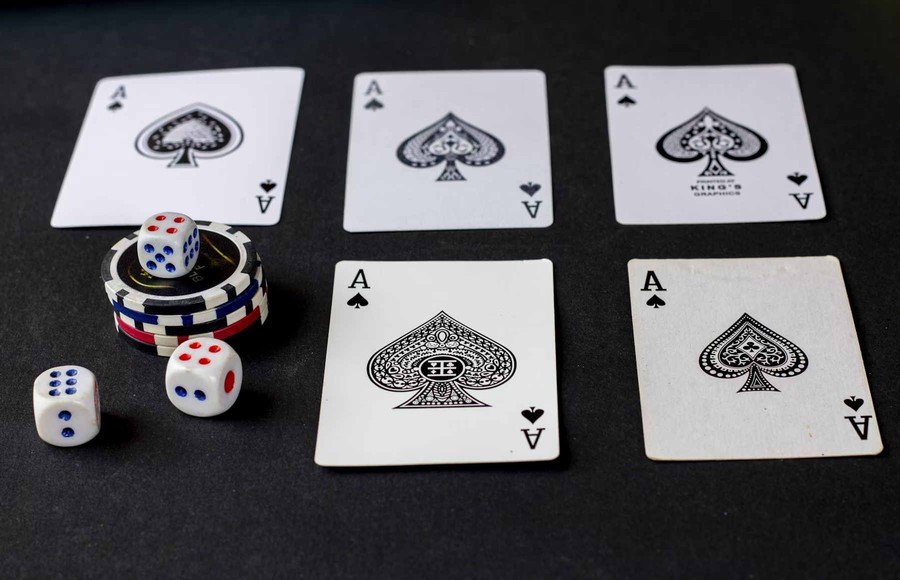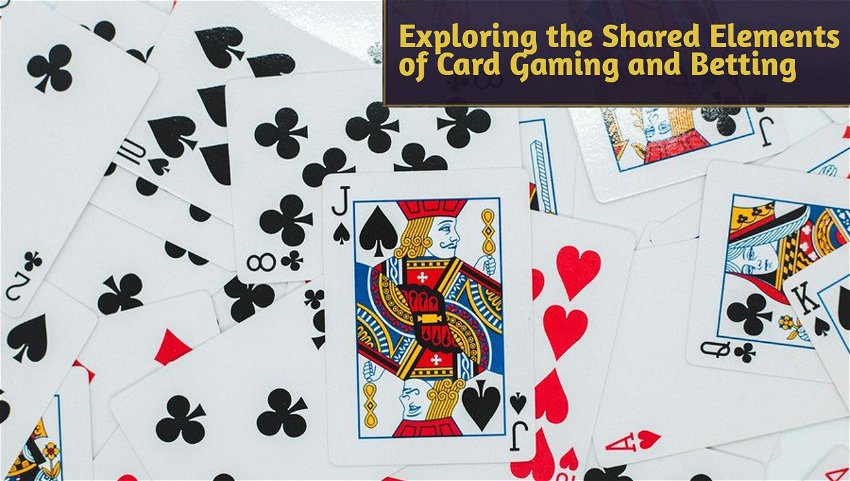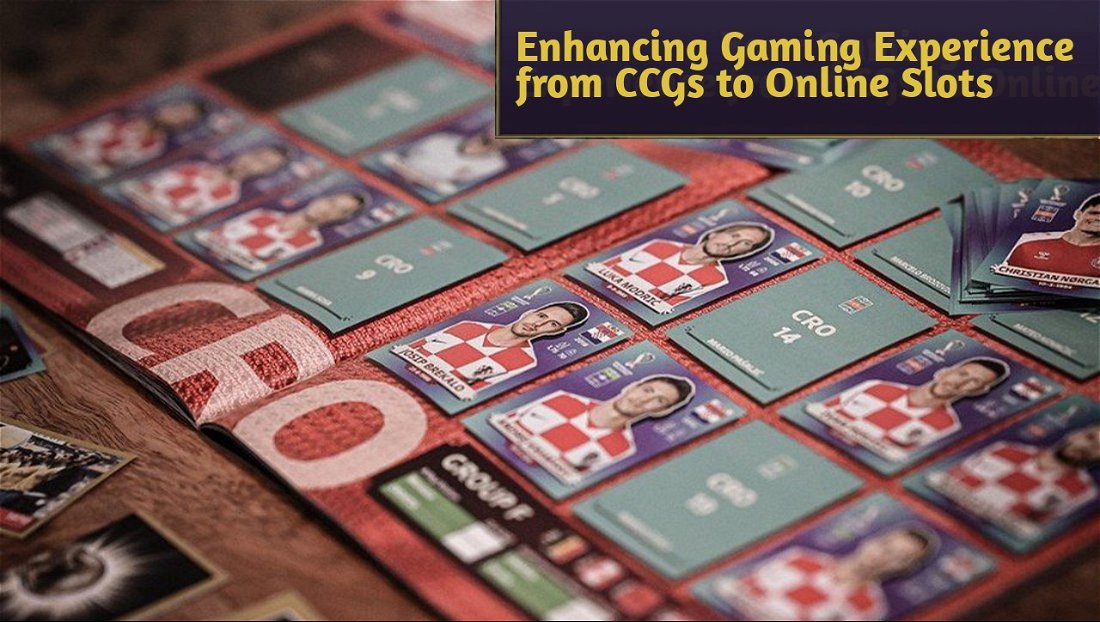Despite their differences, card games and betting have a surprising strategic overlap. They both need resource management, risk-taking calculations, and opponent reading. This article explores this fascinating synergy and shows the different elements between both activities.
Identifying these similarities will help you gain a better knowledge of probability and chance and, in the end, increase your chances of success. So, whether you're planning a card game hand or navigating the best cash-out betting sites at BetZillion or other platforms about gambling, knowing the common elements between card games and betting can help you make the most of your next card wagering sessions.
Strategic Thinking

So, the foundation of strategic decision-making in skill-based card games is probability analysis and fundamental mathematical ideas. Making smart choices throughout gameplay requires a knack for calculating odds, evaluating probabilities, and gauging risk.
• Examine the table: Hand analysis shouldn't be done by itself. Observe the cards being played and any community cards on the table. Consider these cards' potential effects on your hand's overall strength.
• Recognize opponent predispositions: You can analyze hands with more than just your cards. Keep an eye on the tactics and playing styles of your rivals. Observe trends in their betting habits, frequency of bluffs, and responses to the communal cards.
• Continuous assessment: During the game, hand analysis is a continuous activity. Consider again the strength of your hand and possible combinations as additional cards are dealt and the community cards are revealed.
Gaining the ability to think strategically is necessary to win skill-based card games. Players can make well-informed decisions about the power of their cards and the potential of their opponent's hands by evaluating and analyzing them. Furthermore, using strategies like card counting, bluffing, and prudent risk management improves games and offers players an advantage over rivals.
Risk Assessment

Beyond the excitement of rivalry and the allure of possible gains, risk assessment is a vital component that unites card games and betting. Success in any situation, whether reading an opponent's hand or evaluating betting chances, depends on your capacity to estimate risk and make wise choices in the face of uncertainty.
Even though they can be profitable and entertaining, card games and betting always have a financial risk. Knowing the hazards associated with participating in these events for individuals and organizations organizing them is important. This evaluation explores the main risk factors related to card games and betting, emphasizing monetary loss, possible addiction, and legal issues.
You can make smart decisions on their participation by identifying and analyzing these risks. Also, devise effective strategies for mitigation to ensure responsible gameplay and regulatory compliance.
Psychological Factors

Since playing Card games requires you to comprehend and influence your opponents' thoughts, feelings, and actions, psychology is very important. Pay close attention to your opponent's movements and behaviors and consider those while making decisions. Instead of coming across as nervous, projecting confidence and aggression may help you force your rivals to make mistakes and fold the game. In a card game, general psychological strategies are very important.
Role of Psychology in Card Gaming and Betting
The following justifies the significance of psychology in a card game game:
Reading Opponents
Read your opponents. Observing their actions, body language, and betting habits can be helpful to know about your opponents' hand strength. You may understand how they make better decisions by observing their reactions and seeing patterns in them.
Bluffing
Bluffing is a basic card game tactic, and the secret to a good bluff is psychology. Your actions, betting habits, and body language can all create misleading impressions and trick your opponents into making bad choices.
Emotion Control
Card game players who can control their emotions have a major advantage. Card games may be an emotionally charged game. Making decisions requires the ability to understand and regulate your own emotions. Players with strong emotional attachments are more prone to act rashly, show off their hand strength, or tilt—play poorly out of irritation or rage.
Table Image
It is the impression people get of you when playing you. You can influence opponents' choices by skillfully controlling your image. For instance, opponents may be more likely to fold against your bets, even while you're bluffing, if you are playing cautiously and have solid hands. Conversely, giving off an aggressive vibe can make opponents second-guess their actions and blunders.
Adaptation
A card game is a dynamic game. So, it's important to adjust to varied opponents and scenarios. Learn more about your opponents' playing approach, trends, and vulnerabilities by closely observing and analyzing them. It allows you to modify your plans and take advantage of their weaknesses. Making better decisions and getting better outcomes can arise from modifying your strategy in response to the psychological dynamics at play.
Mind Pressure
The psychological element of the card game entails applying pressure and using mind tricks to sway the decisions of your rivals. Applying constant pressure with well-timed bluff raises and clever bets will put opponents in uncomfortable situations and encourage mistakes. Mind games entail using psychological strategies to influence opponents' opinions and choices, such as table talk, trash talk, and purposeful shows of confidence or uncertainty.
Players can have a distinct edge at the card game table by learning about human behavior and using psychological methods in the game. A competent card game player also needs emotional restraint to make logical decisions.
Continuous Improvement

The idea of constant progress has unexpected significance in card games and betting, where strategy and chance collide. Through analysis of previous hands, comprehension of opponent patterns, and improvement of decision-making skills, players can improve their games, reduce losses, and potentially increase their winnings.
Continuous progress enables players to become more knowledgeable, flexible, and eventually more strategic navigators of the game's complexities, whether playing for little stakes or big money.
Strategies to Know
| Strategy | Info |
|---|---|
| Staying updated on trends | Keeping up with the most recent tactics and developments in the Card game world |
| Regular hand review | The significance of routinely examining your hands to pinpoint areas that need improvement |
| Seeking feedback | Actively looking for input from professionals and peers to improve your gameplay |
Entertainment Value

Card games and gambling have always gone hand in hand, providing a certain kind of tension and enjoyment. Their continuing appeal stems from the pleasure of planning your next move, the suspense of each card being drawn, and the possibility of reward. While chance does play a part, card games frequently require knowledge and ability, which encourages thoughtful discussion and friendly rivalry.
When betting is added, gaming becomes an interplay between measured risk and possible reward, increasing excitement. A unique entertainment experience made possible by the combination of mental stimulation, social contact, and the chance to win draws people from all walks of life. Nonetheless, it is vital to recognize the possible hazards linked with gambling and to handle these pursuits sensibly.
Conclusion
To sum up, the exciting world of card games and betting depends on a strategic alliance. In addition to their tactical skill, skilled players must have a good sense of risk and a constant desire to improve themselves. With the excitement of luck and the power of constant psychological elements, this synergy takes these pastimes above the level of simple games and turns them into engaging, entertaining experiences.










— Comentários 0
, Reações 1
Seja o primeiro a comentar